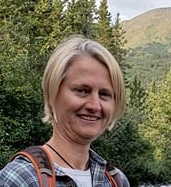I realized during the filming of the video below that I was focused almost exclusively on our programming in the post-Soviet states, which has really been the core of our programming for nearly 25 years. Of course, with the Kremlin as a backdrop, this was a bit natural.
Our general philosophy holds true for all locations. We build programs based on finding solid partners and then developing immersive programming based on the unique educational resources of each location. This you can hear about in detail in the video below. However, it doesn’t mention our two newer locations specifically: Poland and Cuba. Ever since this video shoot, I’ve wanted to add a few words about them as, geographically, they indicate a new direction for SRAS.
So, please check out the video and see the added text below it for still more information.
(commentary continued below)
https://www.youtube.com/watch?v=FFHePPVknEc
In this new video, SRAS founder Renee Stillings discusses how we build our programs around the resources and history of each location. More information about all our locations can be found here. More information on our programs can be found here.
The SRAS Footprint
SRAS makes the superior growth opportunities of non-traditional study abroad locations accessible to enterprising students. Our organization was born in Moscow and spread broadly from there, forming several core locations throughout the former USSR. However, in our pursuit of educational opportunities, we’ve never really been confined to any space. Ideas, and those who pursue them, rarely are.
Thus, we have expanded to focus our efforts on the broad swath of area running from Berlin to Vladivostok. We chose Berlin in the West because of its history and relationship to our core locations and areas of study – from security, to migration, Jewish studies, and other global issues. Vladivostok looks at socio-economic development and how our core locations relate to the Asia-Pacific. The places in between look at, well, pretty much everything in between.
Our core study abroad locations all have some things in common. First, most of our locations are non-traditional because they are, more often than not, misunderstood or misrepresented. These are countries where the movies and news broadcasts have provided the US with very little exposure, or mostly negative information. In a way, a lack of information is often actually worse than negative information.
Second, our locations are defined by the depth of possibilities and range of topics that can be supported in the many ways I describe in the video. Very high on our list are international relations, global issues of security, conflict, identity, and environment. When we add a new location, we are looking for a city that can add to our overall program lineup, bringing in a unique subject or perspective in a city that can provide immersive, out-of-classroom experiences to look at the international, cultural, historical, or scientific factors that play into that subject. Thus, each new location should give students a fuller experience, and perhaps even attract our often-repeat SRAS alumni/students with still more unique opportunities to head back abroad!
Warsaw: A New Destination for Security Studies
While we had always been on the lookout for new expansion opportunities, we were spurred in 2014 to quickly advance these efforts.
In 2014, the first sanctions were levied against Russia and a concerning diplomatic tit-for-tit ensued with diplomat expulsions, consulate closures, and additional sanctions levied by both Russia and the US. Several funding opportunities for US citizens for study in Russia were withdrawn and some even feared travel restrictions might be on the table. This caused a lot of commotion in our market, and we had to consider what might happen if our current student body – Americans – suddenly couldn’t travel to our core destinations in Russia.
I will underline that at no point did we anticipate safety-related issues. We were concerned about bureaucratic issues – visas, funding restrictions, etc.
After analysis and exploration, we settled on Warsaw as our next location. A growing but under-reported political and economic power, Warsaw offered many unique opportunities to bring new information to our students – and from a new, Central European perspective, unique in its rich and dynamic history and individual security concerns. We found a solid partner with Civitas University who could help us deliver this information in an immersive, hands-on, and innovative format.
Thus, we could open a new location that would complement but not compete with our other programs – and offer us another location outside of our traditional core.
Cuba: A New Destination for Diplomacy Studies
A few years ago we supported a faculty led program that brought students to Cuba and then St. Petersburg, Russia. After a few iterations, this program evolved into our Cuba-Russia: Studies in Cultural Diplomacy program. While outside our general Berlin-Vladivostok focus, it still matches our non-traditional location focus perfectly. It tends to receive predominantly negative media coverage, when it receives any media coverage. It is also topically rich – offering much to those studying international relations to environment to culture and more.
The program is still in great part based in Russia, with expanding Cuba programming as we build our experience and resources in that country. Cuba also has many ideological, historical, and current diplomatic connections to our core locations – and, in fact, being in Havana often feels much like being in one of our core locations a decade or two ago, with similar institutions and infrastructure, as much technology was shared between Cuba and the USSR. Architecture in certain areas, Soviet/Russian cars still in use provide even more “physical” reminders of this. Thus, Cuba falls solidly into our footprint.
Moving Forward
SRAS is approaching its 25-year mark at a time when study abroad is filled with both opportunities and challenges. While our region has always had its fair share of challenges simply due to politics and bureaucracy, I believe that increasingly, the opportunities outweigh the challenges. The greater challenges at this stage are about meeting the needs of an increasingly diverse student body, which we will address in a later blog posting.
We continue to develop our programs and other academic efforts, such as the SRAS Family of Sites, to tap exceptional educational opportunities and to counter a lack of information available about a large part of our world. We do this by challenging our students to study in and write about these locations – on topics ranging from popular culture to geopolitics to life as a student. The natural “filter” our locations provide generally attracts the very students who can do this sort of exploration and writing: a particularly bright and adventurous group.


